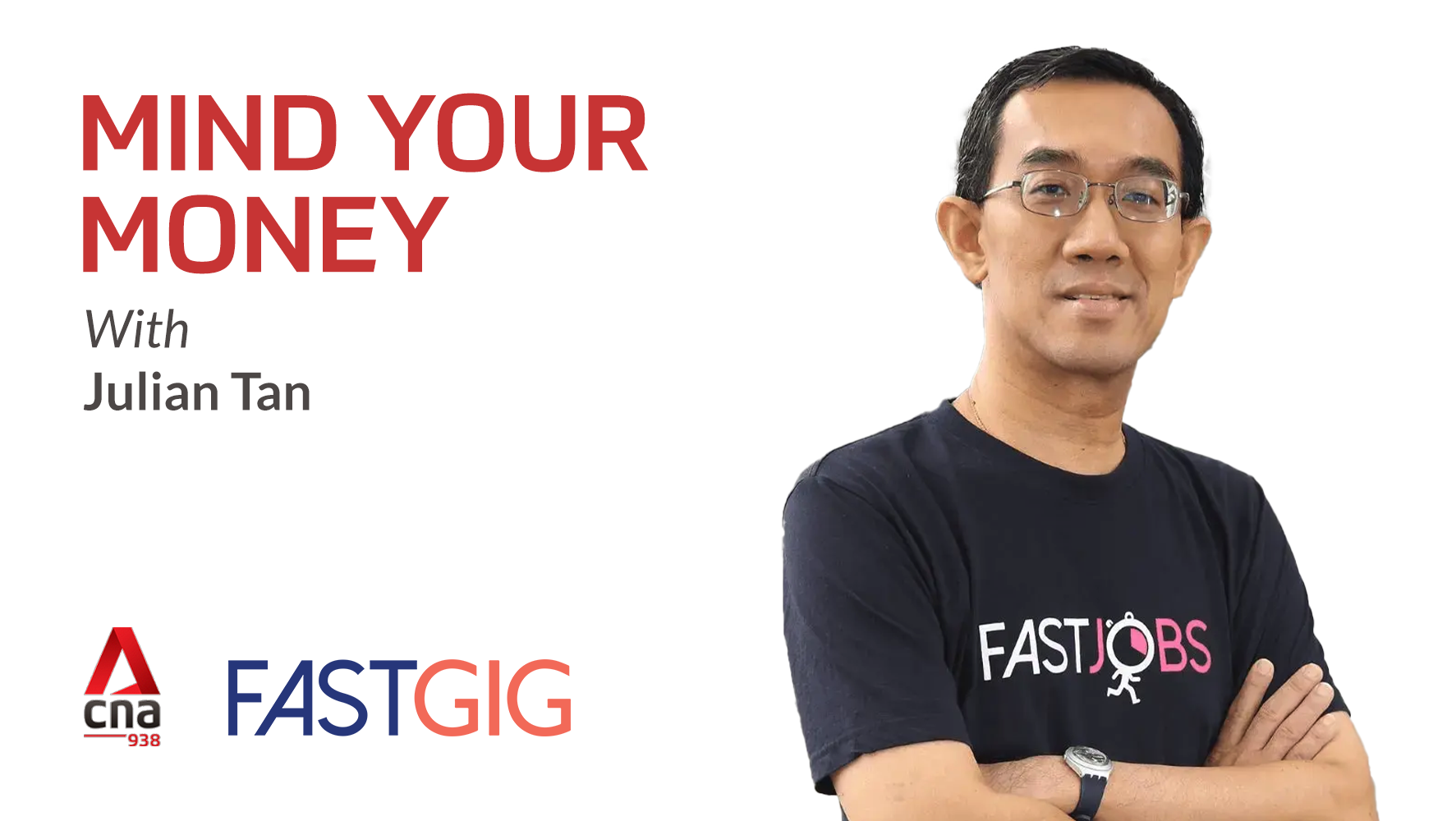In today's fast-paced job market, the recruitment landscape in Singapore is undergoing a digital transformation. As we navigate this shift from traditional offline methods to innovative online processes, companies are discovering new ways to attract and hire talent efficiently.
This article explores how the digital revolution is reshaping recruitment, offering insights into the latest trends and technologies that are streamlining hiring practices. Whether you're an employer looking to modernise your recruitment strategy or a job seeker curious about the changing application process, understanding this digital shift from offline to online recruitment in today's competitive job market is crucial.
The recruitment landscape in Singapore has undergone a significant shift from offline to online processes. Traditional methods like newspaper ads and job fairs are being rapidly replaced by digital platforms, offering a more efficient and far-reaching approach to talent acquisition. This transition has been accelerated by technological advancements and changing candidate preferences, reshaping how companies attract and hire talent.
You'll find that online recruitment channels, including job boards and professional networks, have expanded the scope of hiring. These digital tools provide access to a global talent pool, enabling faster and more effective candidate sourcing.
AI-powered recruitment tools are now being used to analyse vast amounts of data, identify top talent, and automate initial screening processes, saving time and enhancing the accuracy of candidate assessments.
The move to online recruitment brings numerous advantages for you as an employer. Digital platforms streamline the hiring process by automating tasks such as resume screening and candidate communication. This approach not only reduces time and costs associated with traditional methods but also enables precise targeting. Job postings can be tailored to specific skills, demographics, and locations, improving the quality of applications and the overall candidate experience.
Online recruitment harnesses the power of data and analytics to refine hiring strategies. You can now track and analyse metrics such as application sources, candidate engagement, and time-to-hire, providing actionable insights for continuous improvement. This data-driven approach enhances recruitment efficiency and aligns hiring practices with current job market trends. According to a report, there's also a heightened social media activity in Singapore's recruitment landscape, with employers using it for branding and candidates using it to enhance their personal brands.
In the not-so-distant past, companies relied heavily on offline methods to attract talent. Job fairs, newspaper advertisements, and direct mail campaigns were staples of the recruitment process. These traditional approaches, while effective in their time, often had limited reach and were time-consuming for both employers and job seekers.
Personal referrals and face-to-face networking played a significant role in traditional recruitment. These methods fostered strong personal connections but were limited by geographical constraints and individual networks. Walk-in applications were common, allowing candidates to make immediate impressions but often resulting in long queues and inefficient processing.
Newspaper classifieds and industry publications were primary sources for job listings. Companies would invest heavily in crafting compelling job advertisements, hoping to catch the eye of potential candidates. However, these methods lacked the ability to target specific demographics or skill sets efficiently.
Traditional methods often involved manual screening of CVs and scheduling of interviews, leading to prolonged hiring cycles. This time-intensive approach could result in losing top talent to more agile competitors.
The recruitment industry in Singapore is experiencing a significant shift towards digital platforms and processes. This transformation is reshaping how companies attract and hire talent, with online job boards, social media platforms, and professional networks becoming increasingly prevalent. These digital tools offer recruiters access to a global talent pool, enabling faster and more effective candidate sourcing.
Digital platforms are streamlining the hiring process by automating tasks such as resume screening and candidate communication. This automation reduces time and costs associated with traditional methods, allowing recruiters to focus on more strategic aspects of talent acquisition. Online recruitment also enables precise targeting; job postings can be tailored to specific skills, demographics, and locations, improving the quality of applications and the overall candidate experience.
Online recruitment harnesses the power of data and analytics to refine hiring strategies. Recruiters can track and analyse metrics such as application sources, candidate engagement, and time-to-hire, providing actionable insights for continuous improvement.
This data-driven approach enhances recruitment efficiency and aligns hiring practices with current job market trends, particularly important in Singapore's rapidly evolving tech sector where demand for specialised talent is high.
In today's digital age, technology is revolutionising the recruitment landscape, offering unprecedented efficiency and streamlining the hiring process. Artificial Intelligence (AI) is at the forefront of this transformation, automating tasks like candidate screening and interview scheduling. This automation has led to a remarkable 75% decrease in screening costs and an 80% increase in hiring speed.
AI-driven recruitment platforms are enhancing candidate engagement through chatbots, creating positive experiences that bolster an organisation's employer brand. These tools leverage data-driven algorithms to swiftly identify the most qualified candidates. Additionally, predictive analytics is empowering recruiters to make more informed decisions about candidate suitability for specific roles.
Cloud-based HR systems are revolutionising organisational agility, allowing HR professionals to access data and make real-time decisions from anywhere. These platforms streamline HR processes, reduce costs, and improve data security. They also empower employees with self-service capabilities, fostering internal communication and supporting flexible work arrangements.
While technology offers numerous benefits, a study by NUS Business School highlights jobseekers' scepticism towards AI in recruitment. To address this, a collaborative approach is recommended, where algorithms act as decision co-pilots alongside human recruiters, ensuring a balance between efficiency and the human touch in the hiring process.
Virtual job fairs have revolutionised the recruitment landscape, offering a dynamic platform for employers and job seekers to connect remotely. These digital events provide a cost-effective alternative to traditional job fairs, expanding your reach beyond geographical constraints.
You can showcase your company culture and job opportunities to a wider audience, potentially attracting top talent from diverse locations. Virtual booths allow you to share company information, job descriptions, and even conduct preliminary interviews, streamlining the hiring process.
As a job seeker, you gain access to a plethora of opportunities without the need for travel. You can explore multiple companies, attend webinars, and engage in one-on-one chats with recruiters, all from the comfort of your home. This format is particularly beneficial for those seeking flexible work arrangements or remote positions.
To maximise the impact of virtual job fairs, consider incorporating interactive elements such as live Q&A sessions, virtual tours of your workplace, and gamification techniques to keep participants engaged. Utilise chat functions and video calls to facilitate meaningful connections between employers and potential candidates.
In today's digital-first world, job seekers expect a seamless and engaging recruitment experience. Over 80% of candidates consider their candidate experience in the hiring process to be an influence on their offer decision.
With 60% of job applications completed on mobile devices in 2020, a mobile-optimised experience is crucial. Ensure your career site and application process are easily navigable on smartphones and tablets. This approach not only caters to candidate preferences but also widens your talent pool.
85% of job seekers rate hiring process transparency as a key factor when choosing an employer. Implement automated status updates and timely responses to keep candidates informed throughout the process. Consider using chatbots to provide instant information about the organisation and application process, enhancing engagement and conversion rates.
Utilise AI-powered tools for candidate screening and matching to improve efficiency and reduce bias. Employ predictive analytics to make data-driven hiring decisions, analysing factors that indicate candidate fit and potential retention. This approach not only streamlines the recruitment process but also enhances the quality of hires.
The COVID-19 pandemic has accelerated the adoption of online recruitment methods in Singapore. Digital platforms are streamlining the recruitment process, allowing for faster and more efficient candidate sourcing.
Artificial Intelligence (AI) and automation are revolutionising recruitment in Singapore. AI-powered tools are being used to analyse video interviews, power chatbots, and even write high-performing job postings. These technologies enhance efficiency and improve the overall candidate experience.
Video interviews have become a staple in Singapore's recruitment landscape. This shift allows hiring managers to access a larger, more diverse talent pool, including candidates from different geographical locations. It's an efficient way to conduct initial screenings and helps companies adapt to the new normal of remote work.
As recruitment evolves, striking the right balance between technology and human interaction is crucial. AI-powered tools are revolutionising hiring processes, offering efficiency through automated resume screening and data-driven insights. These advancements enable recruiters to focus on strategic aspects of talent acquisition.
However, the human element remains irreplaceable. Candidates seek authentic connections and personalised experiences, which AI cannot fully replicate. Empathy, cultural fit assessment, and building genuine relationships are areas where human judgment excels.
To thrive in this new era, recruiters must adapt by:
The future lies in a cooperative approach where AI complements human abilities. By embracing this synergy, organisations can create a more efficient, data-driven, and fair hiring process while maintaining the essential human touch that candidates value.
Online recruiting in Singapore is transforming hiring through digital tools that expand reach, streamline processes, and meet candidate expectations.
Virtual job fairs offer cost-effective ways for employers and candidates to connect remotely, potentially attracting top diverse talent. Job seekers gain access to opportunities without travel, exploring companies from home.
AI tools can improve efficiency, matching, and screening. COVID-19 has accelerated online recruiting. AI and automation are revolutionising recruiting through tools like chatbots and video interview analysis.
While technology enhances efficiency, human connections remain essential. Candidates seek authentic interactions that AI cannot fully provide. Recruiters must leverage AI to augment human abilities, creating a more efficient and fair hiring process.
To learn more about how your business can adapt to the changing recruitment landscape in Singapore through digital transformation and innovative solutions, visit FastJobs today.

In Singapore’s job market, portals offer fast access while agencies provide tailored matchmaking.
Read more
FastGig helps solve manpower shortages by offering flexible gig work for businesses and individuals in SG.
Read more
What matters more? Skills and experience or an employee's school qualifications? Get insights on how Singapore employers strike a balance between both when hiring.
Read more